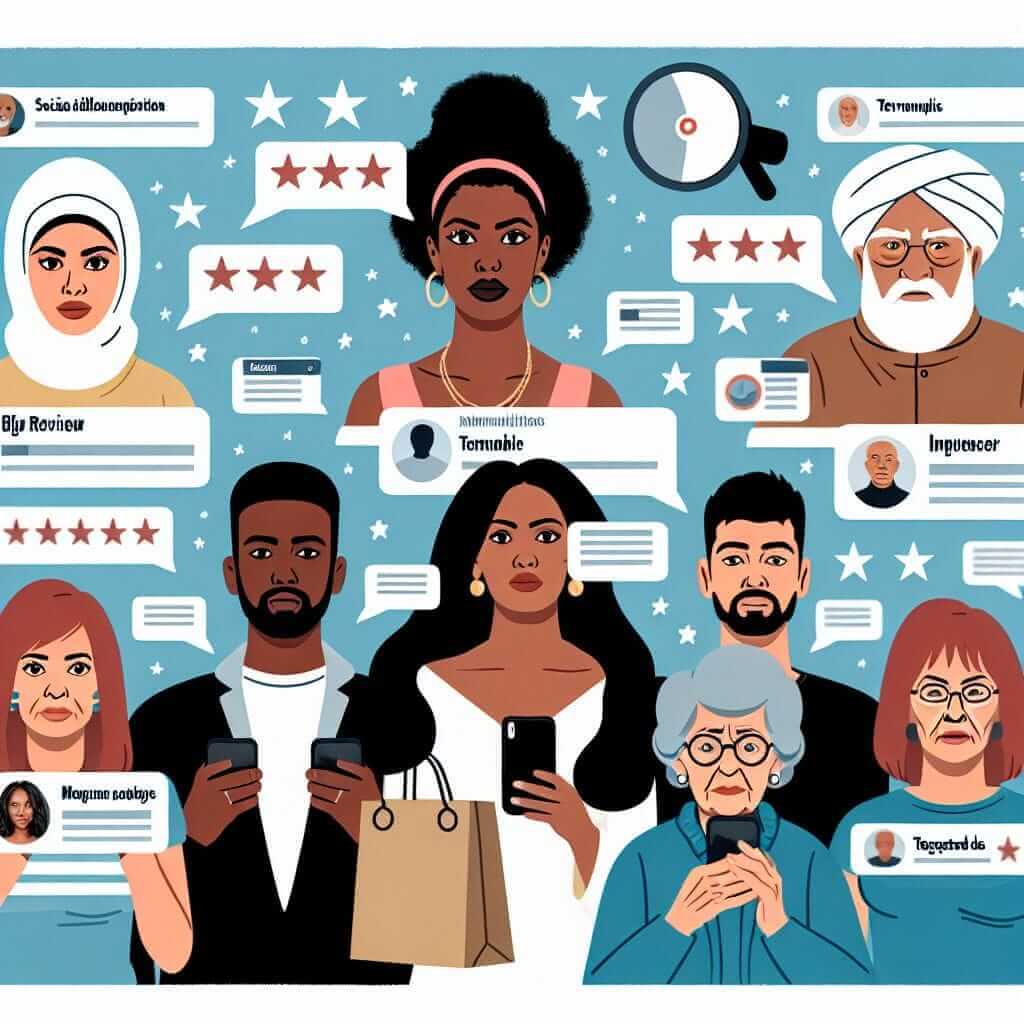The IELTS Reading section is challenging, encompassing a diverse range of topics from various fields, including psychology, technology, and business. One frequently discussed topic is “How does social media influence consumer behavior?”. This topic is not only relevant in today’s digital world but also has appeared multiple times in past IELTS exams. With the rise of digital marketing and the ubiquitous presence of social media, understanding this topic can help candidates perform well in the reading section of the exam.
Full Reading Text
How Does Social Media Influence Consumer Behavior?
Social media platforms such as Facebook, Instagram, Twitter, and TikTok have become integral parts of modern life. These platforms significantly impact the way consumers behave, influencing their purchasing decisions, brand perceptions, and overall engagement with businesses. Below is a structured text that simulates the kind of reading passage you might encounter in the IELTS exam.
The Role of Social Media in Consumer Decision-Making
Social media has fundamentally altered the traditional consumer decision-making process. Historically, consumers relied on personal experiences, recommendations from friends and family, and advertisements in traditional media to inform their purchasing decisions. However, with the advent of social media, the process has evolved into a multifaceted interactive journey.
One of the primary ways social media influences consumer behavior is through social proof. Social proof is a psychological phenomenon where people mimic the actions of others in an attempt to reflect correct behavior in a given situation. Reviews, testimonials, and user-generated content on social platforms provide social proof that significantly impacts consumer decisions. For instance, a study by Nielsen in 2019 found that 92% of consumers trust organic, user-generated content more than traditional advertising.
Moreover, influencers on social media play a crucial role in shaping consumer behavior. These individuals have amassed large followings and have the power to affect the opinions and purchasing behaviors of their audience. Influencer marketing leverages this phenomenon; brands collaborate with influencers to promote products authentically, reaching a wide audience in a relatable and engaging manner.
The Impact of Social Media on Brand Perception
Brand perception is another critical aspect influenced by social media. Today’s consumers expect transparency and authenticity from brands. Social media platforms enable brands to engage directly with their audience, fostering a sense of community and loyalty. Companies use platforms like Twitter for real-time customer service, while Instagram and Facebook are popular for showcasing brand stories and values.
Negative experiences shared on social media can quickly gain visibility, potentially harming a brand’s reputation. Conversely, positive interactions and customer testimonials can enhance a brand’s image and attract new consumers. For example, a viral Twitter thread about exceptional customer service can lead to increased brand loyalty and awareness.
Social Media and Consumer Engagement
Engagement on social media is not limited to consumption of content but includes active participation. Many brands encourage user-generated content, contests, and interactive posts to boost engagement. When consumers engage with a brand on social media, it becomes a part of their identity, further influencing their behavior and loyalty.
Additionally, targeted advertising on social media platforms allows brands to reach specific consumer segments based on demographics, interests, and online behavior. This personalized approach leads to higher engagement rates and conversion rates compared to traditional advertising methods.
 Consumer behavior influenced through social media content
Consumer behavior influenced through social media content
Sample Questions and Answers
Questions
Identifying Information (True/False/Not Given)
- Traditional advertising is more trusted by consumers than user-generated content.
- Influencer marketing relies solely on celebrities to promote products.
- Negative reviews on social media can damage a brand’s reputation.
Matching Information
Match each statement with the correct paragraph from the passage.
- The psychological phenomenon where people follow others’ actions.
- Engaging targeted consumer segments through demographics.
Answers and Explanations
- False – The passage states that 92% of consumers trust organic, user-generated content more than traditional advertising.
- False – Influencer marketing involves individuals with large followings, not solely celebrities.
- True – The passage mentions that negative experiences shared on social media can potentially harm a brand’s reputation.
- Social proof is discussed in paragraph 2.
- Targeted advertising through demographics is mentioned in the last paragraph of the passage.
Common Mistakes and Tips
Common Mistakes
- Misinterpreting Statements: Candidates often misinterpret statements in True/False/Not Given questions. It’s crucial to read carefully and relate the answers directly to the text.
- Overlooking Keywords: Missing key terms that change the meaning, such as “solely” or “more than,” can lead to incorrect answers.
Tips for Improvement
- Skimming and Scanning: Improve your ability to skim for general meaning and scan for specific information.
- Keyword Matching: Focus on matching keywords in the question to words or synonyms in the passage.
- Practice Reading Timing: Time yourself while practicing to manage the 60 minutes allocated efficiently.
Vocabulary
- Psychological (adj.): /ˌsaɪ.kəˈlɒdʒ.ɪ.kəl/ – relating to the mind or emotions.
- Testimonial (n.): /ˌtes.tɪˈmoʊ.ni.əl/ – a formal written statement about someone’s character or qualifications.
- Demographics (n.): /ˌdem.əˈɡræf.ɪks/ – statistical data relating to the population and particular groups within it.
Grammar
Complex Sentences
- Relative Clauses: “brands collaborate with influencers to promote products that authentically reach a wide audience.”
- Passive Voice: “user-generated content on social platforms is provided as social proof.”
Advice for High Scores in Reading
- Consistent Practice: Regularly practice with authentic IELTS reading passages.
- Enhance Vocabulary: Study and remember complex vocabularies; they often recur in exams.
- Improve Reading Speed: Rapid eye movements and efficient parsing of information are crucial for managing time.
By focusing on these areas, candidates can enhance their performance in the reading section of the IELTS exam, especially when dealing with contemporary topics like social media’s influence on consumer behavior.


